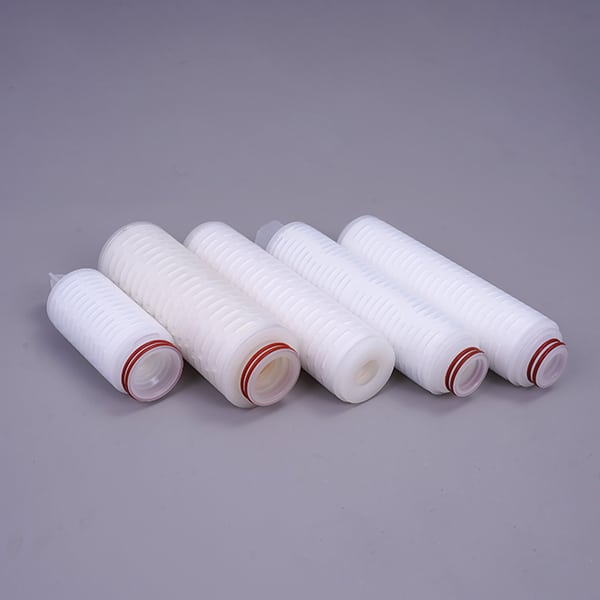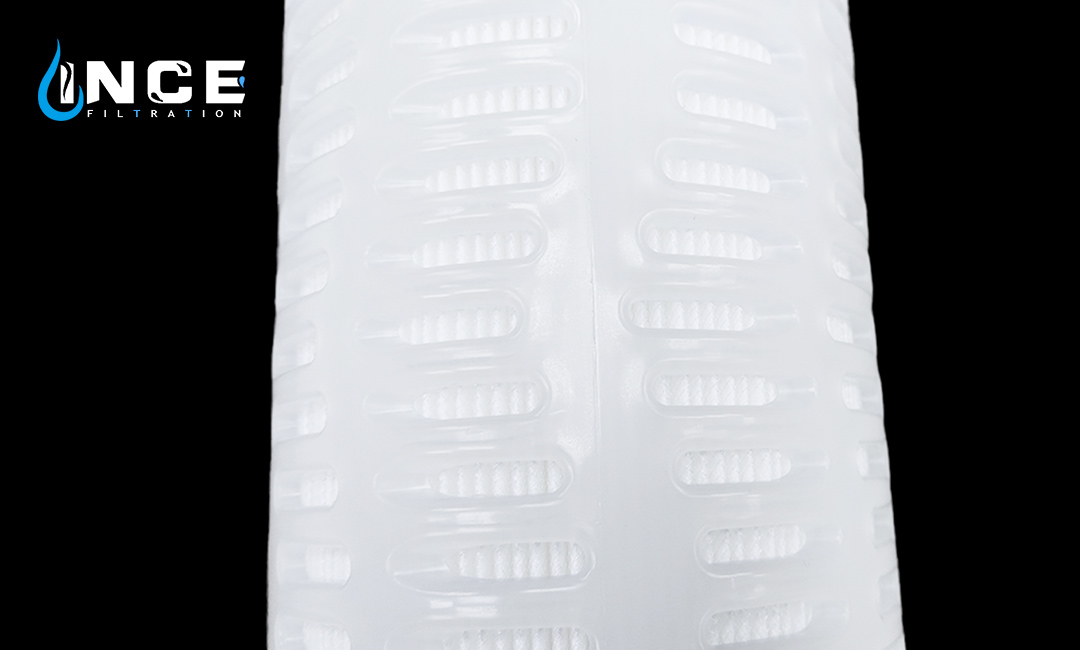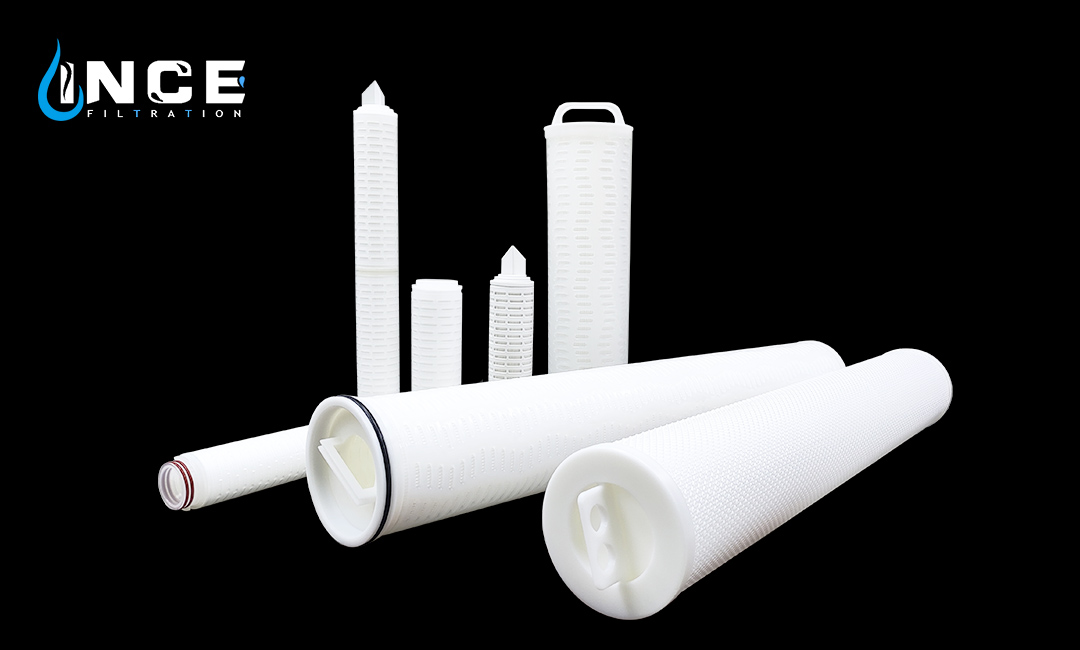
Pro Tips for Maintaining Your High Flow Pool Filter
Benefits of Regular Filter Cleaning
Maintaining a high flow pool filter is essential for keeping your pool water clean and clear. A clean filter ensures that debris and contaminants are effectively removed from the water, preventing algae growth and maintaining proper water circulation. Regular filter cleaning is key to ensuring that your pool filter operates efficiently and effectively. In this article, we will discuss the benefits of regular filter cleaning and provide some pro tips for maintaining your high flow pool filter.
One of the primary benefits of regular filter cleaning is improved water quality. A clean filter is able to trap and remove debris, dirt, and other contaminants from the water, preventing them from circulating back into the pool. This helps to keep the water clean and clear, making it more enjoyable for swimming and lounging. Additionally, clean water is safer for swimmers, as it reduces the risk of skin and eye irritation caused by bacteria and other harmful microorganisms.
Regular filter cleaning also helps to maintain proper water circulation in your pool. A clogged or dirty filter can restrict water flow, causing the pump to work harder and potentially leading to equipment damage. By keeping your filter clean, you can ensure that water circulates efficiently through the system, preventing issues such as cloudy water and algae growth. Proper water circulation also helps to distribute chemicals evenly throughout the pool, ensuring that the water remains balanced and safe for swimming.
In addition to improving water quality and circulation, regular filter cleaning can also extend the life of your pool equipment. A clean filter puts less strain on the pump and other components of the filtration system, reducing the risk of premature wear and tear. By maintaining your filter properly, you can help to prolong the life of your pool equipment and avoid costly repairs or replacements down the line.
Now that we have discussed the benefits of regular filter cleaning, let’s move on to some pro tips for maintaining your high flow pool filter. First and foremost, it is important to establish a regular cleaning schedule for your filter. Depending on the size of your pool and the amount of use it gets, you may need to clean your filter every 1-2 weeks. Be sure to follow the manufacturer’s recommendations for cleaning and maintenance, as different types of filters may require different care.
When cleaning your filter, be sure to follow the proper procedure. This typically involves removing the filter from the system, rinsing it with a hose to remove debris, and soaking it in a filter cleaner solution to remove any built-up contaminants. Be sure to thoroughly rinse the filter after cleaning to remove any remaining cleaner or debris before reinstalling it in the system.
In addition to regular cleaning, it is also important to monitor the pressure gauge on your filter system. A sudden increase in pressure may indicate that the filter is becoming clogged and needs to be cleaned. By keeping an eye on the pressure gauge and cleaning your filter as needed, you can ensure that your pool filtration system operates at peak efficiency.
In conclusion, regular filter cleaning is essential for maintaining a clean and healthy pool. By following these pro tips for maintaining your high flow pool filter, you can ensure that your pool water remains clear, safe, and enjoyable for swimming. Remember to establish a regular cleaning schedule, follow the proper cleaning procedure, and monitor the pressure gauge to keep your filter in top condition. With proper maintenance, your high flow pool filter will continue to provide clean and clear water for years to come.
Importance of Proper Chemical Balance
Proper maintenance of your high flow pool filter is essential to ensure that your pool stays clean and safe for swimming. One of the most important aspects of maintaining your pool filter is ensuring that the chemical balance of your pool water is correct. This is crucial for the effectiveness of your filter and the overall health of your pool.

Maintaining the proper chemical balance in your pool water involves monitoring and adjusting the levels of chlorine, pH, alkalinity, and calcium hardness. These chemicals work together to keep your pool water clean and clear, and they also play a role in preventing the growth of algae and bacteria. If the chemical balance in your pool water is off, it can lead to a host of problems, including cloudy water, algae growth, and even skin and eye irritation for swimmers.
To maintain the proper chemical balance in your pool water, it is important to test the water regularly using a pool water testing kit. This will allow you to monitor the levels of chlorine, pH, alkalinity, and calcium hardness and make any necessary adjustments to keep them within the recommended ranges. It is also important to shock your pool regularly to kill any bacteria or algae that may be present in the water.
In addition to testing and adjusting the chemical balance of your pool water, it is also important to clean your pool filter regularly. A dirty or clogged filter will not be able to effectively remove debris and contaminants from your pool water, which can lead to poor water quality and strain on your filter system. To clean your pool filter, you should backwash it regularly and also remove and clean the filter cartridges or grids as needed.
Another important aspect of maintaining your high flow pool filter is ensuring that the water level in your pool is at the proper height. If the water level is too low, it can cause your pump to run dry, which can damage the pump and reduce the effectiveness of your filter. On the other hand, if the water level is too high, it can cause the skimmer to become ineffective at removing debris from the surface of the water.

Regularly checking and adjusting the water level in your pool is an important part of maintaining your high flow pool filter. You should also make sure that the skimmer and pump baskets are clean and free of debris, as this will help to prevent clogs and ensure that water can flow freely through your filter system.
In conclusion, maintaining the proper chemical balance in your pool water is essential for the effectiveness of your high flow pool filter and the overall health of your pool. By testing and adjusting the levels of chlorine, pH, alkalinity, and calcium hardness regularly, cleaning your pool filter, and ensuring that the water level in your pool is at the proper height, you can keep your pool clean and safe for swimming all season long.
Tips for Backwashing and Rinse Cycles
Maintaining a high flow pool filter is essential for keeping your pool water clean and clear. One of the key components of maintaining a high flow pool filter is ensuring that you properly backwash and rinse the filter on a regular basis. In this article, we will provide you with some pro tips for maintaining your high flow pool filter through backwashing and rinse cycles.
First and foremost, it is important to understand the purpose of backwashing and rinse cycles. Backwashing is the process of reversing the flow of water through the filter to flush out any trapped debris and contaminants. This helps to prevent clogs and maintain the efficiency of the filter. Rinse cycles are used to flush out any remaining debris and reset the filter for optimal performance.
When it comes to backwashing your high flow pool filter, there are a few key tips to keep in mind. First, always refer to the manufacturer’s instructions for your specific filter model. This will ensure that you are following the correct procedure for backwashing your filter. Additionally, it is important to backwash your filter when the pressure gauge indicates a 7-10 psi increase over the normal operating pressure.
To backwash your high flow pool filter, start by turning off the pump and closing the skimmer and main drain valves. Next, set the multiport valve to the “backwash” position and turn the pump back on. Allow the filter to backwash for 2-3 minutes, or until the water runs clear. Once the backwashing is complete, set the multiport valve to the “rinse” position and run the pump for another 1-2 minutes to flush out any remaining debris.
After backwashing and rinsing your high flow pool filter, it is important to monitor the pressure gauge to ensure that the filter is operating at the correct pressure. If the pressure continues to rise, it may be necessary to backwash the filter more frequently or clean the filter media.
In addition to regular backwashing and rinse cycles, there are a few other tips for maintaining your high flow pool filter. First, always keep the filter clean by removing any debris from the skimmer and pump baskets on a regular basis. This will help to prevent clogs and maintain the efficiency of the filter.
It is also important to check the filter media regularly and replace it as needed. Over time, the filter media can become clogged with debris and contaminants, reducing the effectiveness of the filter. By replacing the filter media when necessary, you can ensure that your high flow pool filter continues to operate at peak performance.
In conclusion, maintaining your high flow pool filter through regular backwashing and rinse cycles is essential for keeping your pool water clean and clear. By following these pro tips for backwashing and rinse cycles, you can ensure that your high flow pool filter operates efficiently and effectively. Remember to always refer to the manufacturer’s instructions for your specific filter model and monitor the pressure gauge to ensure that the filter is operating at the correct pressure. With proper maintenance, your high flow pool filter will provide you with clean and clear pool water for years to come.
Choosing the Right Filter Media
Maintaining a high flow pool filter is essential for keeping your pool water clean and clear. One of the key factors in maintaining your filter is choosing the right filter media. There are several options available, each with its own pros and cons. Understanding the differences between them can help you make an informed decision that will keep your pool running smoothly all season long.
One of the most common types of filter media is sand. Sand filters are popular for their low cost and ease of maintenance. They work by trapping debris and particles in the sand bed, allowing clean water to flow back into the pool. However, sand filters do require regular backwashing to remove trapped debris, which can be time-consuming and wasteful of water.
Another popular option is cartridge filters. Cartridge filters are known for their high filtration efficiency and low maintenance requirements. They consist of a pleated filter cartridge that traps debris as water passes through. Cartridge filters do not require backwashing, making them a more environmentally friendly option. However, they do need to be cleaned regularly by removing and hosing down the cartridge.
Diatomaceous earth (DE) filters are another option for high flow pool filters. DE filters use a fine powder made from fossilized diatoms to trap debris and particles. DE filters offer the highest level of filtration efficiency, making them ideal for pools with high levels of debris. However, DE filters require regular maintenance, including backwashing and adding fresh DE powder to the filter.
When choosing the right filter media for your high flow pool filter, consider factors such as the size of your pool, the amount of debris it collects, and your maintenance preferences. Sand filters are a good option for smaller pools with moderate debris levels, while cartridge filters are ideal for larger pools with minimal maintenance requirements. DE filters are best suited for pools with high levels of debris that require superior filtration.
Regardless of the type of filter media you choose, proper maintenance is key to keeping your high flow pool filter running smoothly. Regular cleaning and backwashing are essential to prevent clogs and ensure optimal filtration. Additionally, it is important to monitor the pressure gauge on your filter and clean or replace the filter media as needed.
In conclusion, choosing the right filter media is crucial for maintaining your high flow pool filter. Consider factors such as filtration efficiency, maintenance requirements, and pool size when selecting the best option for your pool. Regular maintenance and cleaning are essential to keep your filter running smoothly and your pool water clean and clear. By following these pro tips, you can enjoy a hassle-free pool season with crystal clear water all summer long.

